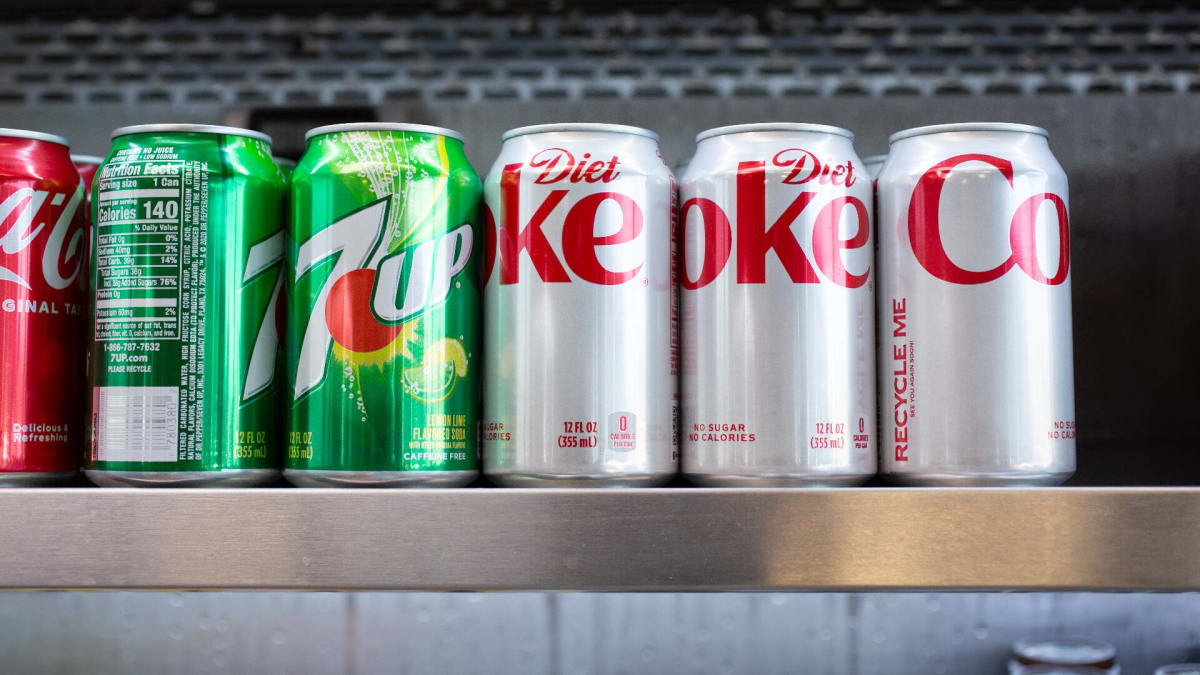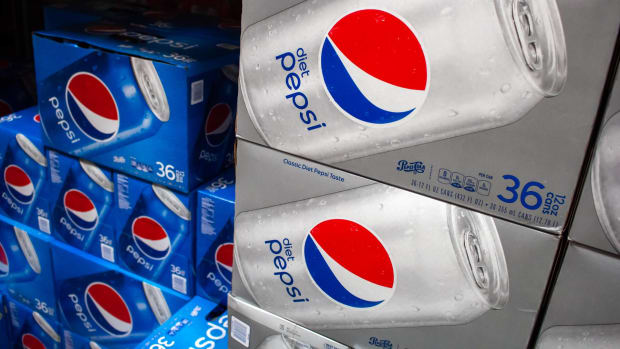
The first can of Diet Coke hit the shelves in 1982 and the controversy over the aspartame that makes it sweet without the calories dates back just as long.
While the Federal Drug Administration approved the sweetener in 1980 (and its use in soft drinks two years later), conflicting research over health effects has resulted in a decades-long push and pull and PR battle over the safety of sugar-free soda.
DON'T MISS: 'Guess What's In It': Coca-Cola Execs Talk Veteran Products, New Initiatives
While the connection between aspartame and certain types of cancer has conflicting research, the World Health Organization (WHO) is getting ready to label the sweetener as "possibly carcinogenic to humans" in a new report that will make it more difficult for the industry to dismiss the ties.

Shutterstock
'Possibly Carcinogenic' Rating Could Pose Major Blow to Coke, Pepsi
The WHO branch that researches cancer ties in products, International Agency for Research on Cancer (IARC), will publishing the new research in the coming weeks. Two inside sources with knowledge of the research first leaked the news to Reuters.
While aspartame is used in everything from Extra and Trident gum to certain types of breakfast cereals, it is most commonly associated with diet soda — the label will likely deal a major blow to both the Coca-Cola Company (KO) and Pepsi (PEP). Both companies have been trying to remarket sugar-free drinks with new products like Coca-Cola Zero and Pepsi Max.
The key thing to know is that the research around the ties hasn't changed and still shows that there is a possible but not clearly established connection — the "possibly carcinogenic to humans" label is used when there is "limited evidence" to suggest cancer ties and is has also been put on everything from processed meat to food cooked to crispiness.
Most of the current research trying aspartame to lymphoma and leukemia in rats relied on feeding them extremely high doses of 20 to 500 milligrams per kilogram of body weight — a human of average weight would need to drink anywhere from 12 to 24 cans a day for years for an equivalent experiment.
The WHO said that, when the new report comes out, it will also indicate the dosage at which aspartame consumption can be tied to cancer — the labels are determined only based on whether the ties rather than how much is needed for the cancers to develop.
Report Could 'Needlessly Mislead Consumers,' Industry Says
"Following this, the joint FAO/WHO expert committee on food additives will update its risk assessment exercise on aspartame, including the reviewing of the acceptable daily intake and dietary exposure assessment for aspartame," the WHO confirmed to media after news of the report leaked.
But already, many responded with criticism of the WHO's "alarmist" responses to certain common products and activities — in 2015, the health organization issued a similar statement saying that consistently working overnight shifts is also a "probable carcinogen" due to its disruption to circadian rhythms.
The food and industry immediately pushed back and said that a report that does not take into account could confuse the public over just how little aspartame one consumes in a drink compared to how much was used in research around cancer.
Kate Loatman, the executive director of the International Council of Beverages Associations, said in a press statement that it could also "needlessly mislead consumers into consuming more sugar rather than choosing safe no- and low-sugar options."
July 4th Sale! Get investment guidance from trusted portfolio managers without the management fees. Sign up for Action Alerts PLUS now for 75% off.







